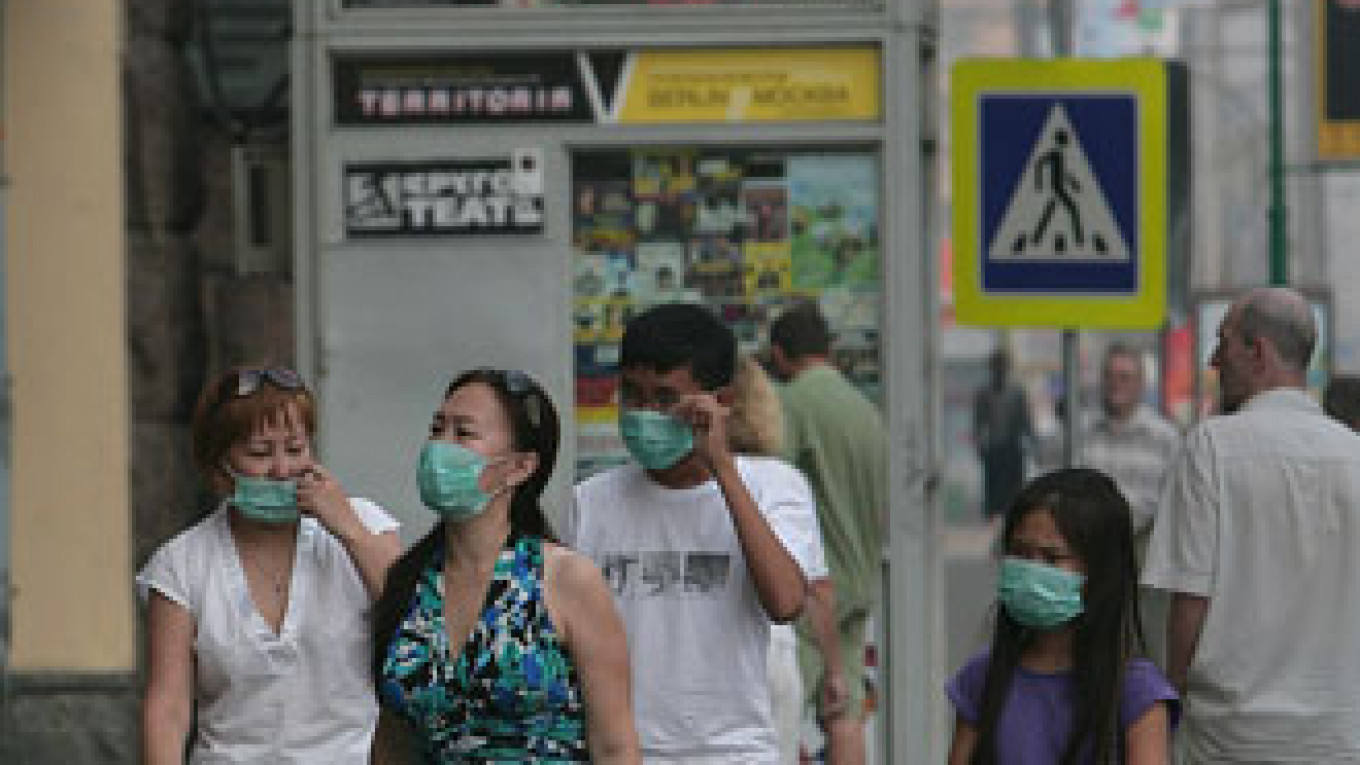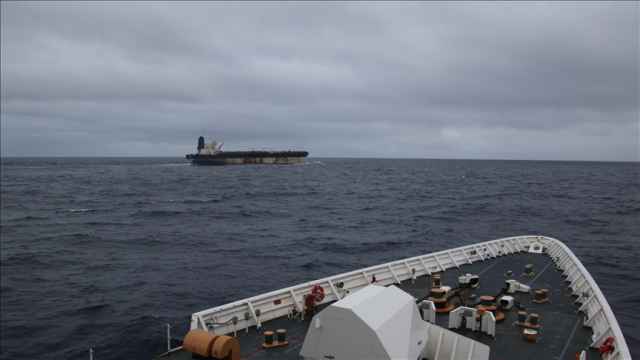At the height of this summer's heat wave, some doctors warned that a few hours of inhaling the thick, acrid smog that blanketed Moscow was like smoking a pack of cigarettes.
One scientist declared that cases of suicide, diabetes and alcoholism would soar once winter set in because of the aftereffects of the toxic smoke.
But now that chilly rains and a cold front have swept away both the heat and the smoke, doctors are not so sure that the consequences of the summer spent sweating and coughing in smog hell will be quite so bad.
Moscow might see a slight increase in deaths, but the average, healthy city dweller has little to fear, several doctors said in interviews.
Galina Kokovkina, head doctor at City Dispensary No. 17, said patient traffic has increased by 30 percent at her clinic after the Health and Social Development Ministry grouped it among 50 in the city where people could get free medical examinations after the smog.
But, Kokovkina said, none of the patients have shown signs of illness because of the smoke, which drifted into the capital from peat fires in the Moscow region.
"There have not been any serious cases," she said in an interview, adding that many of her clinic's patients had come from the areas worst affected by the fires in the Moscow region.
Kokovkina said, however, that it was difficult to detect any ill effects of the smoke on the respiratory system and other vital organs so soon after the summer ordeal.
"Those are changes that we can't see clearly," she said. "Besides, a lot depends on a person's health."
Still, she expressed skepticism that the smog would have any major long-term effects on her patients.
It will take at least a year to determine the long-term effects of this summer as researchers study slowly emerging data, said Sergei Zakharov, deputy head of the Demography Institute at the Higher School of Economics.
"There definitely will be an increase in the death rate, but no expert can even assume what the figure will be like," Zakharov said.
If the statistics are well collected, researchers might be able to conduct their first-ever study of such a disaster, he said. Severe wildfires in central Russia in 1972 killed at least 104 people and burned 1,460 hectares, but no one gave serious study to the long-term effect on health afterward, he said.
This summer's fires in central Russia destroyed 927,500 hectares and killed about 50 people.
Moscow's death rate increased by 50.7 percent in July, jumping to 14,340 deaths compared with 9,516 during the same month last year, according the the civil registration office, also known by its Russian acronym, ZAGS.
The head of Moscow’s health department, Andrei Seltsovsky, said earlier this month that the death rate doubled during the heat wave, with about 700 deaths registered every day compared with the usual 360 to 380 deaths. He also said the number of daily ambulance calls increased to about 10,000 from the usual 7,500.
Russia's top pulmonologist, Alexander Chuchalin, has warned that the smoke weakened the immune systems of people in affected areas, making them more susceptible to disease.
The heat also has had an impact on all the body's vital organs, Boris Revich, a senior demography and environmental researcher at the Russian Academy of Sciences, said Aug. 17. In the coming months, "we should expect more cases of diabetes, suicide and alcohol-related nervous breakdowns," he said, RIA-Novosti reported.
But Nikita Neverov, a senior family doctor with Medsi, formerly known as the American Medical Center, said it was difficult to estimate long-term health effects because of a lack of official data on the composition of the smog.
"The effect is unlikely to be positive, but it's hard to forecast that right now," Neverov said.
He said that as a rule, the smoke is followed by a five-day reaction period, after which symptoms are unlikely to emerge.
But deeper research into the composition of the smoke and the people who breathed it is needed in order to pinpoint possible chronic diseases, he said.
Repeated requests to the city's health department for comment on the implications of the smog went unanswered between Wednesday and Friday.
A senior city doctor, Leonid Lazebnik, took a darker view of the smog last week, comparing its consequences to long-lasting altitude sickness.
"Those who lived through it will feel its consequences for a long time, maybe even for the rest of their lives," he said, Rossiiskaya Gazeta reported last Monday.
Meanwhile, at least one Moscow resident is trying to file a lawsuit that holds City Hall, the Emergency Situations Ministry and the Heath and Social Development Ministry responsible for a deterioration in the health of Moscow residents because of the smog.
In her lawsuit, lawyer Svetlana Dobronravova said the authorities failed to provide enough assistance when she asked for it during the smog. She also said officials did not give her the locations of Moscow bomb shelters, where she hoped to hide from the smog.
Moscow's Tverskoi District Court refused to accept the lawsuit last Tuesday, saying it contained technical mistakes.
Dobronravova called Russian News Service radio on Wednesday to complain that unknown callers, possibly linked to the police, were threatening to send her to a mental hospital because of the lawsuit. She promised to refile the lawsuit anyway.
A Message from The Moscow Times:
Dear readers,
We are facing unprecedented challenges. Russia's Prosecutor General's Office has designated The Moscow Times as an "undesirable" organization, criminalizing our work and putting our staff at risk of prosecution. This follows our earlier unjust labeling as a "foreign agent."
These actions are direct attempts to silence independent journalism in Russia. The authorities claim our work "discredits the decisions of the Russian leadership." We see things differently: we strive to provide accurate, unbiased reporting on Russia.
We, the journalists of The Moscow Times, refuse to be silenced. But to continue our work, we need your help.
Your support, no matter how small, makes a world of difference. If you can, please support us monthly starting from just $2. It's quick to set up, and every contribution makes a significant impact.
By supporting The Moscow Times, you're defending open, independent journalism in the face of repression. Thank you for standing with us.
Remind me later.






